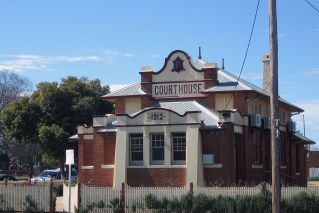Even a personal intervention from Facebook founder Mark Zuckerberg wasn’t enough for the federal government to change its mind over the News Media Bargaining Code, with Treasurer Josh Frydenberg committing to forge ahead with the controversial policy.
“No, Mark Zuckerberg didn’t convince me to back down,” Mr Frydenberg said on Sunday’s ABC Insiders program.
The federal government’s new code, formulated by the Australian Competition and Consumer Commission, would force digital giants Facebook and Google to make significant concessions to media outlets.
Under the current draft, which is to be debated in parliament in coming weeks, both would have to better compensate news publications for displaying their content, as well as give outlets more information about their search and newsfeed algorithms.
That information is currently a closely held secret for both companies, and they have already made powerful threats, with Facebook pledging to block Australian news content and Google promising to simply block Australians from using its search engine if the code comes into force.
Mr Frydenberg said the government had no plans to change course, despite the threats.
WATCH: @JoshFrydenberg on talking with Facebook founder Mark Zuckerberg and the PM with the CEO and president of Microsoft about the proposal to make big tech companies pay media companies for journalism. #Insiders #auspol pic.twitter.com/mSRM2N8qoe
— Insiders ABC (@InsidersABC) January 30, 2021
“I don’t dismiss the threats but I’m not intimidated by them either,” he said.
“The Morrison government, whether it’s on this issue, whether it’s on cyber bullying or terrorist content on the Internet, we have been prepared to take on the digital giants.”
The treasurer revealed the conversations had gone to the highest level.
“Even last week, the [communications] minister Paul Fletcher and I had a meeting with Mark Zuckerberg from Facebook, who reached out to talk about the code and the impact on Facebook,” Mr Frydenberg said.
“It was a very constructive discussion.”
In a statement to The New Daily, a Facebook spokesperson confirmed the conversation.

Mr Frydenberg said he was “not intimidated” by Facebook or Google’s claims. Photo: AAP
“Our executives regularly meet with government stakeholders across the world on a range of topics to help inform clear rules for the internet,” the company said.
“We’re actively engaging with the Australian government with the goal of landing on a workable framework to support Australia’s news ecosystem.”
Mr Frydenberg added that Prime Minister Scott Morrison had also spoken to the top brass at Microsoft, which runs another search engine Bing. Mr Frydenberg said Microsoft was “watching this very closely” and would “see opportunities here in Australia to expand.”
Some had joked that Bing – which currently has less than five per cent of the country’s market share in search engines – could be the big beneficiary of the code, if Google quits Australia.
Microsoft told The New Daily last week that it was monitoring the situation.
“We recognise the importance of a vibrant media sector and public interest journalism in a democracy and we recognise the challenges the media sector has faced over many years through changing business models and consumer preferences,” a company spokesperson told TND.
However, the spokesperson said Bing would not be “directly” included in the bargaining code, and declined to speak directly about its search engine competitor.
“With respect to the current controversy over a potential code of conduct governing Google and Facebook, Microsoft is not directly involved and we wouldn’t want to comment on that ongoing process involving the ACCC and those companies,” Microsoft’s spokesperson said.
Mr Frydenberg criticised Facebook and Google for their claims about how the code would affect their businesses, claiming that “the goalposts seem to be shifting”.
“At every step of the way, these businesses have been consulted,” he said.
“Originally, they had a concern with the algorithm requirements of notification. Then it was about value exchange and then it was about a final arbitration model. Now we’re told that if we go ahead with this, we’re going to break the Internet.”
“What I do know is that media businesses should be paid for content.”
Elsewhere in the interview, Mr Frydenberg appeared to confirm the government would not be extending the JobKeeper wage subsidy or the extra JobSeeker coronavirus supplement in any significant way beyond their March cut-off dates. He referred to those payments as “short-term money” and not a permanent increase.
WATCH: @JoshFrydenberg on whether JobKeeper will end at the end of March. #Insiders #auspol pic.twitter.com/XfwsZUXCvo
— Insiders ABC (@InsidersABC) January 30, 2021
“Every dollar we’ve spent through this crisis is a borrowed dollar,” he said.
“So we have to be very cautious about what we spend on. Our spending has been sticking to a set of principles. It’s been targeted. It’s been proportionate. It’s been using existing systems and we haven’t built in structural spending for the longer term.”
Mr Frydenberg said the treasury still projected Australia’s debt to hit $1 trillion this year, despite more rosy economic numbers than previously forecast.
The JobSeeker payment is set to return to the old Newstart amount of around $40 a day, unless the government makes changes before the end of March. The New Daily understands no final decision has been made on an amount, but Coalition sources say there is an understanding within the government that the payment cannot return to its previous level.
A modest rise in the base rate is likely, with a decision to be made much closer to the scheduled end-date of the coronavirus supplement.









